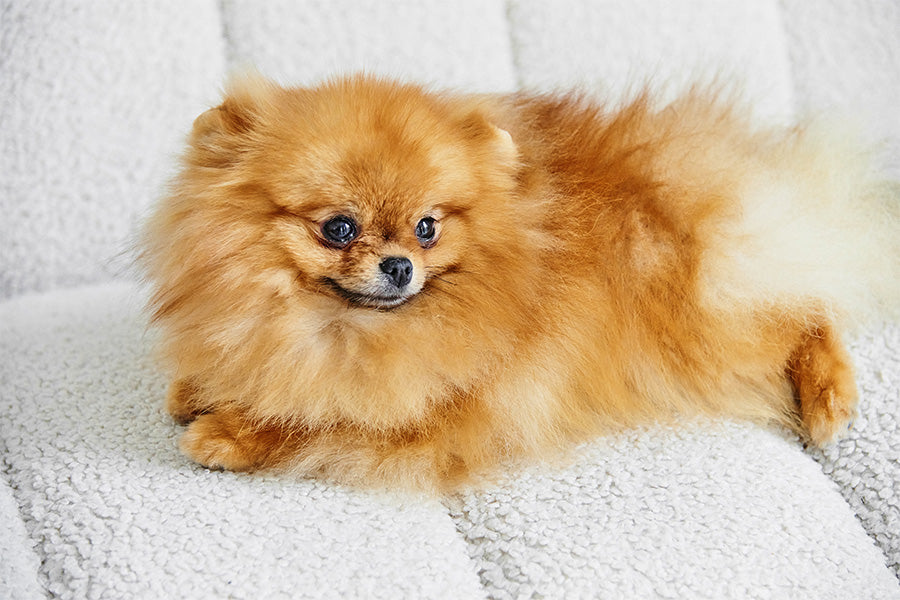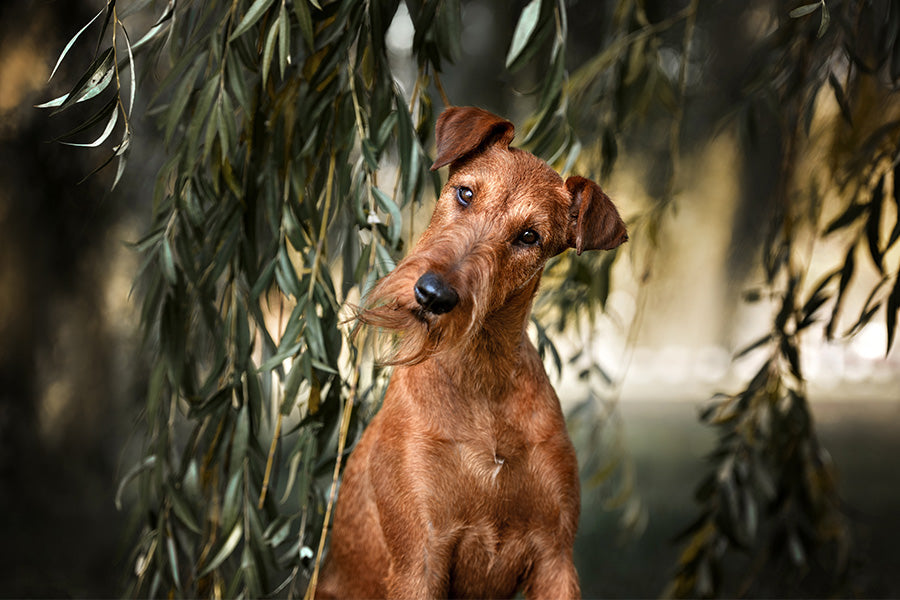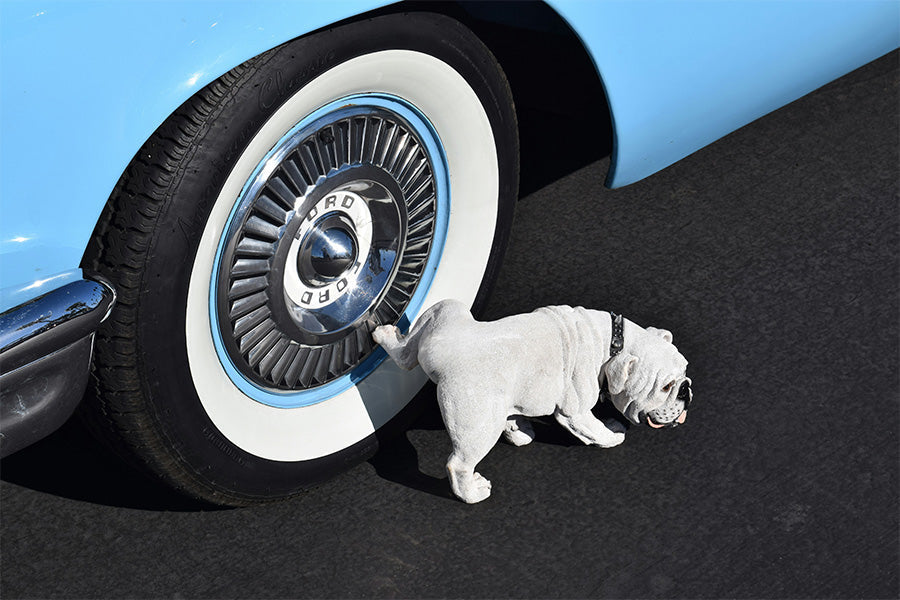Potty Train a Puppy for First-Time Owners

Bringing a new puppy home is a thrilling experience. It's filled with joy, laughter, and, naturally, some challenges.
For new puppy owners, training is among the most crucial tasks. This will influence how your puppy grows and how you connect with them.
But where do you start? What's the best way to train a puppy?
This guide is designed to assist you. It's filled with practical tips and techniques for effective puppy training at home. So, whether you're facing struggles with potty training or basic commands, this guide has you covered. Let's begin this rewarding journey together.

Understanding Your Puppy's Needs
Every puppy is unique, just like their owners. The first step in training your puppy is to know what they need. Observe their behaviour, energy levels, and what they like. This will guide you in planning your training. Make sure your puppy's basic needs are met.
A puppy that is well-fed, rested, and comfortable will learn better. Don't forget that emotional support is important as well. Puppies seek affection and reassurance. Developing a strong bond will foster better learning. Each dog breed has unique traits that can help with training.
As puppies grow, they go through different stages. Each stage needs different activities and challenges. Change your approach as they develop.
Trust your instincts---when your puppy is happy, stressed, or confused, you'll know. Adjust your puppy training methods until you find what works for you and your pup.
Establishing a Routine
A routine is vital for your puppy's development. It offers clear guidelines and steady support, both of which are important for good training.
Start by setting consistent feeding times, which helps predict potty breaks and simplifies housebreaking. Schedule potty breaks after meals, playtime, and naps. A regular schedule minimizes accidents.
Incorporate play and training into your daily routine. Designate time for play and short training sessions to promote your puppy's physical and mental growth.
Having a regular bedtime routine is important. Puppies need plenty of rest, and a consistent sleep schedule helps them stay healthy.
Be patient as you establish new routines. Your puppy might need time to adjust, but the hard work will pay off. In the end, you'll have a happy and well-behaved dog.
The Power of Positive Reinforcement
Positive reinforcement is crucial for effective puppy training. It encourages good behaviour through rewards and praise. Whenever your puppy follows a command, reward them instantly with treats, praise, or playtime. Consistency is key.
Give rewards right after they do what you want. This helps them connect their actions to the reward. Steer clear of punishment, as this can result in fear and confusion.
Using positive reinforcement builds trust and a strong bond with your puppy. Keep training sessions short and enjoyable. Gradually, your puppy will associate learning with good experiences. Focus on rewarding the behaviours you wish to encourage.
As your puppy learns to follow commands, you can slowly stop giving treats. They will become better at responding without expecting a reward every time.

Potty Training Essentials
Potty training is a vital component of puppy care, laying the foundation for a clean and happy home. Start by establishing a routine: take your puppy to their designated potty area at consistent times each day. Puppies have small bladders and require frequent dog bathroom breaks, particularly after eating, playing, and waking up.
Here are the best potty training tips for small dogs:
-
Set a schedule: Consistency helps your puppy learn.
-
Use specific commands: For instance, a simple "go potty" helps create associations.
-
Reward and praise: Treats and encouragement go a long way in reinforcing good behaviour.
-
Be patient: Accidents will happen; it's part of the learning process.
-
Clean accidents thoroughly: Properly eliminating odours prevents repeat incidents.
Watch your puppy's body language closely. If they sniff the ground or start circling, it's a sign they need to go outside.
Noticing these signs can help you stop accidents from happening inside. If your puppy has an accident, don't scold them. Instead, praise them when they go outside. This positive feedback helps them learn good bathroom habits over time.
Using a Dog Litter Box
Many dog owners in Canada may look to indoor potty training for puppies. Having an indoor bathroom for dogs, like a dog litter box, can be a hygienic and useful tool for training a new puppy. An option like the Doggy Bathroom Canada offers convenience while ensuring consistent potty habits.
Some people might choose a simple dog potty tray. Others may prefer a permanent indoor dog toilet, like dog pee pads.
This can be useful during the winter months or even for your puppy's senior years. Also, that may seem far away—it's never too soon to start planning.
It's helpful for your dog to be acquainted with pee pads, as they might need them for various situations, such as after surgery.
When training your puppy to use their pet bathroom, introduce them to the dog litter box gradually. Place it in a quiet space and encourage your puppy to explore the puppy pee pee pads. Bear in mind that not all puppies will adapt right away to their puppy pee pad tray. Consistency and patience are vital on how to train a puppy to use a potty tray.
When your puppy learns to use the box for bathroom breaks, it makes life much easier. This is especially true in bad weather or if you live in an apartment.
Transitioning from Pee Pads
Pee pads serve as a beneficial interim solution for very young puppies living indoors. As your puppy matures, it's essential to transition them to outdoor potty habits. Gradually move the pee pad closer to the door and eventually outside.
Encourage outdoor potty sessions using the same reward-based system. This easy change helps reduce the need for pee pads and supports natural bathroom habits. It helps create a routine that works in any setting.

Socialization and Behavioural Training
Socialization is crucial for raising a well-adjusted puppy. Introducing pets to a variety of people, environments, and sounds early can reduce fear and aggression as they grow.
Introduce your puppy to various environments calmly. Take them on car rides, walks around your neighbourhood, and visits to pet-friendly spaces to create these opportunities.
Make sure these experiences are positive to enhance your puppy's confidence and curiosity. Start socializing your puppy once they feel secure and have received vaccinations.
Playing with other pets and kids in safe places helps them learn good behaviour. Include play sessions that mimic real-life situations. This will help your puppy get used to new sounds and sights. It can also reduce anxiety in new places.
Addressing Common Behavioural Issues
Curiosity is a hallmark of puppies, but they can develop habits like biting, barking, or jumping. It's wise to tackle these behaviours promptly to avoid future issues.
For biting, redirect your puppy's focus towards chew toys and reward them for refraining from biting. Excessive barking often indicates boredom or excitement, so identify the root cause.
Keep your puppy active and mentally stimulated with exercise and fun activities. This will help them focus better. Jumping often means your puppy is excited. Teaching them to "sit" can help calm them down.
Patience remains essential. Regular feedback and praise support learning and help create a calm and happy home.
Crate Training and Creating a Safe Space
Crate training can be beneficial for your puppy's comfort and safety. Think of the crate as a cozy den that offers security rather than confinement.
Begin by introducing your puppy to the crate with the door open. Place familiar toys and a soft blanket inside to make it inviting.
Slowly increase the time your puppy spends in the crate. Make sure each experience is positive. This way, your puppy will see the crate as a safe place for naps or when it feels overwhelmed.
Basic Commands and Obedience Training
Begin teaching your dog simple commands like "sit," "stay," and "come." Use clear words and actions to make sure everyone understands.
Patience and practice are vital during obedience training. Keep training sessions short and focused. This will help your puppy stay interested and avoid getting frustrated.
Celebrate small victories with praise and treats. Consistency among family members is crucial. This cuts down on confusion and helps your puppy learn faster.
Use positive reinforcement in all situation. It helps build trust and strengthens the bond between you and your pet.
Rewarding your puppy for good behaviour helps them learn and builds a stronger bond between you. The joy in your puppy's eyes upon mastering a command will be a reward in and of itself.

The Role of Exercise and Play in Training
Regular exercise is crucial for a puppy's well-being and reduces excessive energy. Keeping your puppy active can help them focus better during training. A tired puppy often pays more attention and learns more easily.
Playtime is an excellent opportunity to reinforce training concepts. Play interactive games that include following commands and practicing obedience tasks.
Balancing play and training helps create a well-rounded puppy and builds a happy relationship. Consider including mentally challenging activities; puzzle toys effectively keep your puppy's mind active and support their learning.
Choosing the Right Training Treats and Toys
Choosing the right treats is important for successful training. Opt for small, tasty treats made with high-quality ingredients.
Think about using low-calorie options to prevent overfeeding when you're training your pet. Toys should be safe, durable, and appropriate for your puppy's size and chewing habits.
Interactive toys help keep pets mentally active. Choose toys that mix playtime with training, such as puzzles that give treats.
Ensure that both treats and toys align with your ethical values. Choose products made from safe, environmentally friendly materials. Making thoughtful selections supports your puppy's health and a better planet.
Ethical Considerations and Product Selection
Ethics matter when choosing products for your puppy. Look for brands that care about the environment and animal welfare. Make sure they share your values.
Select products made from eco-friendly materials. Non-toxic and sturdy choices are best for your puppy's health and safety. It's important to think about how products are made and the working conditions for the workers.
Transparent companies openly share details about how they operate. Choosing ethical options is good for your puppy and the world we all share.

Patience, Consistency, and Love
Training your new puppy is a journey, not a race. Patience is vital---setbacks are simply learning opportunities for both you and your furry friend.
Consistency in training routines fosters trust. Utilize clear commands and signals every time. Your puppy will feel more secure and confident, knowing what to expect.
Above all, shower your puppy with love and affection. A strong bond helps them want to learn.



